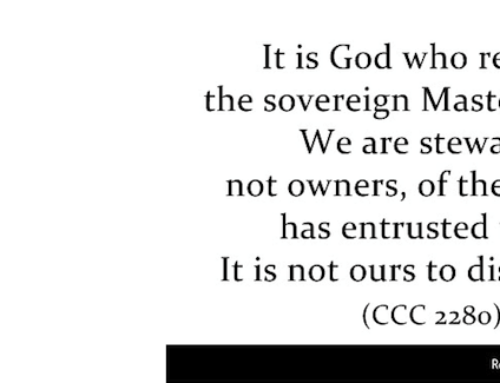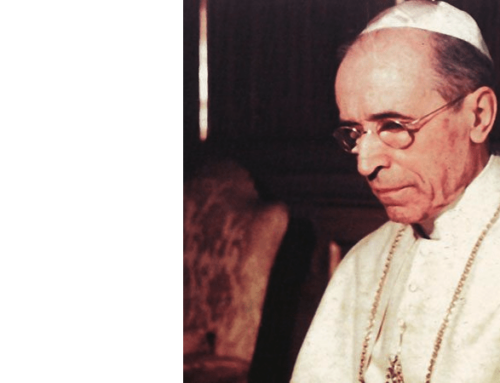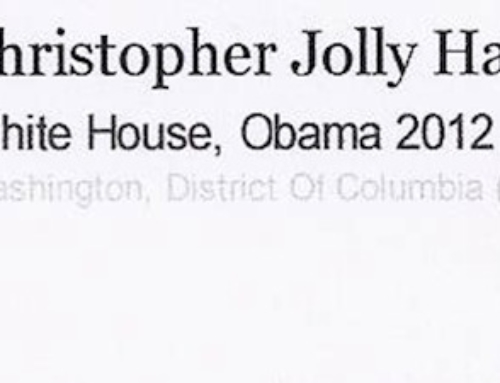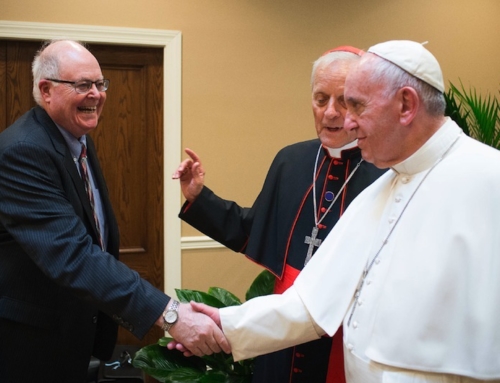Bill Donohue
This article was originally published by Newsmax on January 27, 2014.
When Pope Francis speaks about our “throwaway” abortion culture, or comments on marriage as a union between a man and a woman, he wins no points from those on the left. But when he speaks about income inequality, he is praised by the likes of President Barack Obama and New York City Mayor Bill de Blasio. However, these three men are not speaking from the same page. What is driving Obama and de Blasio is envy; what is driving the pope is justice.
The Catholic Church considers envy to be one of the seven capital sins. It is not identical to jealousy. The jealous want what others have; the envious want to deprive others of what they have.
The Austrian-German sociologist, Helmut Schoeck, contended that envy was inherent in human nature and had to be contained. He credited the
Catholic Church for taming envy, saying it played a decisive role in the advancement of civilization. But it had a way of springing back with a vengeance, especially in the hands of left-wing politicians.
Schoeck’s book, Envy: A Theory of Social Behaviour, released in the 1960s, was a clarion call against the exploitation of envy for political ends. “The time has surely come when we should stop behaving as though envious man was the main criterion for economic and social policy,” he said.
Obama and de Blasio exemplify Schoeck’s concern. Both of them are consumed with tapping into a debased appetite for envy, driving a wedge between the classes. De Blasio, for instance, promised to raise taxes on the rich to pay for his prekindergarten classes. Governor Andrew Cuomo agreed that this is a good idea (forget the fact that all the evidence shows that Head Start-type programs have no lasting effect on students), but he said he would pay for it out of state funds. No way, said de Blasio, he still wants the rich to pay more. Thus, the mayor’s prime interest was to “get the rich.”
Obama is so obsessed with leveling the classes that even his former economic advisor, Larry Summers, spoke out against his policies at the World Economic Forum in Davos. “The rhetoric of envy and the rhetoric of tearing down, I don’t think, is the right rhetoric for America’s leaders,” he said. Summers advocates policies that grow the economy for everyone; otherwise, he said, we would be left with a “stagnant pie.”
So irrational is the politics of envy that its proponents don’t really care whether the policies it is supposed to fund work at all. Take economist Rick Newman. In a burst of honesty, he admits that “getting the rich” is more important than policy outcomes. Writing for Yahoo Finance, he said, “let’s just say it—the rich can afford a tax increase, even if the money is used for some dim-witted redistributionist scheme that doesn’t incentivize work.”
Such a depraved vision of society has nothing to do with Pope Francis’ concerns. In the pope’s statement to those meeting in Davos, he sounded more like Summers than Obama or de Blasio. He did not evince a trace of envy in his plea to the rich: “Those who demonstrated their attitude for being innovative and for improving the lives of many people by their ingenuity and professional expertise can further contribute by putting their skills at the service of those who are still living in dire poverty.”
Pope Francis wants the rich to use their skills to help the poor; he is not baiting the masses to demand that the rich pay more in taxes so that they can pay less. It’s the difference between a genuine interest in helping the needy, and soaking the rich.
The politics of envy does nothing to address the conditions of the poor, but it does foster divisiveness. Worse, it allows shallow politicians to beat their breast in a false demonstration of compassion, while delivering nothing but resentment and stagnation. If that is what they want, so be it, but they have no right to pretend that they see eye-to-eye with the pope.






